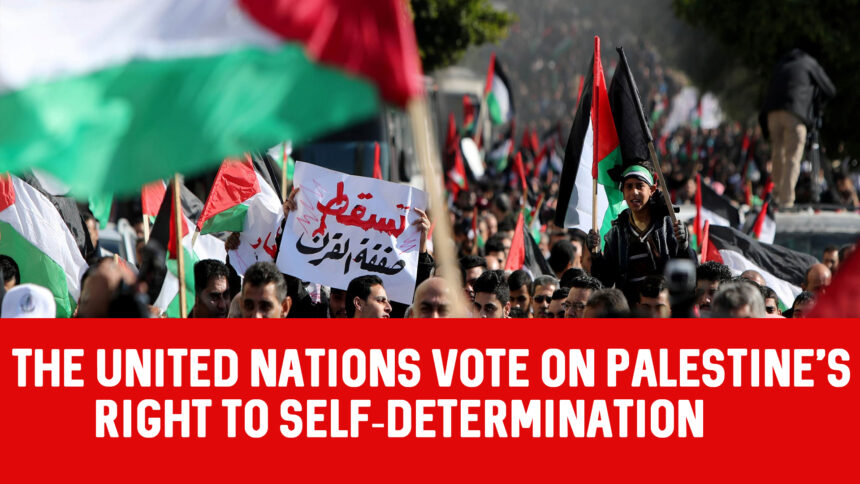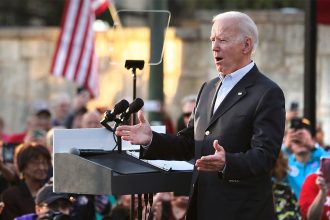The United Nations has voted on Palestine’s right to self-determination. This move has far-reaching consequences, not just for Palestine and Israel but also for the international community as a whole.
On November 15, 2024, the United Nations General Assembly passed a resolution affirming the right of the Palestinian People to independence, self-determination, and freedom from the Israeli population. Therefore, the resolution gave the people of Palestine the authority to establish an independent state of Palestine.
Why the need for this vote? We need to revisit the past to comprehend the worth of this vote. The conflict between Israelis and Palestinians dates back to the early 20th century. In 1947, the UN proposed a partition plan, dividing British-mandated Palestine into separate Jewish and Arab states. A year later, Israel declared its independence, which led to extensive conflict and the displacement of hundreds of thousands of Palestinians.
Since then, the region has seen wars, uprisings, and peace talks; however, a lasting solution remains vague. The backbone of this conflict is the Palestinian demand for self-determination — the right to self-determination and establish an independent state.
You might be wondering what the UN was doing about this whole thing. In fact, the United Nations has not been quiet; it has long been involved in the issue.
The Palestine Liberation Organization (PLO) was granted non-member observer status in 1974, and by 2012, Palestine was recognized as a non-member observer state. However, the question of independence and self-determination has remained contentious.
The UN has passed several resolutions affirming the rights of Palestinians , but these have often been met with resistance from Israel and its allies, including the United States. However, the November 15, 2024 vote took a shocking path. The resolution passed with an overwhelming majority, with 170 member states voting in favour and only six against.
The resolution titled: “The Right of the Palestinian People to Self-Determination,” states that this right is inalienable, unconditional, and non-negotiable, rejecting any so-called “security measures” imposed by Israel as preconditions.
This comes on the back of an 18 September UN General Assembly adaption of a resolution demanding that Israel “brings to an end without delay its unlawful presence” in the Occupied Palestinian Territory and do so within 12 months. Voting result in favor: 124 Against: 14 Abstain: 43
The few nations who voted against the resolution are Israel, the United States, Argentina, Nauru, Micronesia and Paraguay. Countries like Afghanistan and Venezuela had their voting rights revoked mainly due to sanctions imposed by the US. Nations like Australia, Canada, all EU member states, and most nations from Africa, Asia and South America voted in favour of the resolution.
The resolution was co-sponsored by 119 UN member states representing a broad coalition of African, European, Asian, and Latin American countries, highlighting the widespread international support for Palestinian rights.
The resolution drew references from the advisory opinion issued by the International Court of Justice, which reinforces the Israeli occupation illegal and called for its immediate cessation.
According to Israeli Ambassador Gilard Erdan, by voting to partially and preliminarily recognize a potential Palestinian state, the UN General Assembly is moving to empower “the Hitler of our times,” and Churchill and Franklin Roosevelt are turning in their graves.
This vote is more than symbolic. For Palestinians, it reaffirms their struggle for recognition and sovereignty. But, for Israel and its allies, it raises concerns about security and the prospects for a two-state solution.
The Palestinian Ambassador to the UN, Riyad Mansour, reaffirmed Palestine’s commitment to securing international support for the rights of its people.
Critics claim that such resolutions could further polarize the conflict, while supporters believe they’re a necessary step toward justice and peace.
The timing of the resolution is particularly significant, as it comes amid ongoing Israeli atrocities against the Palestinian people, particularly in Gaza. This vote highlights the persistent challenges in achieving a two-state solution. It also highlights the significance of international law and the role of a global community in addressing long-standing conflicts.
While this vote doesn’t create a Palestinian state overnight, it’s a clear message from the international community. Now, it’s up to global leaders to translate words into action.
What do you think about the UN’s vote? Share your thoughts in the comments below














